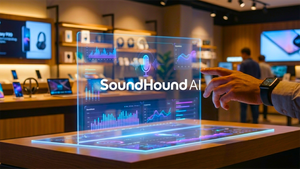The "Global Smart Hospitality Market Size, Share & Industry Trends Analysis Report By Offering, By Deployment Mode (Cloud and On-premises), By End User (Hotels, Cruise, Luxury Yatchs), By Regional Outlook and Forecast, 2022 - 2028" report has been added to ResearchAndMarkets.com's offering.
The Global Smart Hospitality Market size is expected to reach $58.3 billion by 2028, rising at a market growth of 28.4% CAGR during the forecast period.
Smart hospitality is a new technology, which is utilized in hotels and other accommodation locations to use internet-connected equipment that can interact or communicate with each other. It is similar to the internet of things, or IoT, which allows extremely common appliances or equipment in hotels to send and receive data and make intelligent decisions.
Benefits of smart hospitality technologies include improved guest safety with alarming and mobilization, high-speed Wi-Fi, guest voicemail & wake-up, operator & visitor reservation solutions, increased staff mobility, and operator & guest voicemail & wake-up.
One of the major forces behind the expansion of India's services sector is the tourism and hospitality sector. Given the country's extensive natural beauty, diverse environment, and rich cultural as well as historical legacy, tourism in India has a lot of promise. India, like many other countries, depends heavily on tourism for its foreign exchange. According to the Indian Brand Equity Foundation, foreign exchange earnings increased at a CAGR of 7% from 2016 to 2019 but declined in 2020 as a result of the COVID-19 pandemic.
Additionally, by knowing that a Facebook user lists their marital status, Google can more precisely tailor advertisements for that user on its search engine.
In order to make hotel visitors feel satisfied and special, this specific data can also be used to offer them a service that is personalized to their needs. An IoT platform may remember a visitor's varied comfort preferences and then automatically set the room's lighting, temperature, window coverings, and TV channels for their subsequent stay. To make the visitor feel unique, the TV may even welcome and greet them by name when they enter the room.
Market Growth Factors
Rising penetration of 5G in the hospitality sector
With new digital tools and platforms, hotel owners are continually looking for methods to streamline the guest experience. Operators may be able to completely transform their offers with cutting-edge in-room and cross-facility services due to 5G.
Through the provision of the fundamental framework for tying together wireless devices, applications, and people, 5G has the ability to propel digital transformation in the hospitality sector. Hotel owners should be able to communicate with their customers more effectively and learn more about their journeys owing to 5G technology.
Increasing emphasis on personalized services for better customer experience
Hoteliers can create a long-lasting, value-driven connection with every guest and increase the likelihood that they will leave a good review by providing a more individualized travel experience.
Organizing a unique visitor experience boosts brand reputation and customer loyalty in addition to generating income. New smart hospitality solutions give hoteliers access to data-backed insights and behavior that can be used to create a 360-degree perspective of every visitor and improve their experience through better customer care.
Market Restraining Factors
High cost of deployment, maintenance, and training
The deployment of complex and advanced hospitality systems, like Property Management Systems (PMS), Guest Experience Management Systems, etc. is expensive, whether they are installed physically or online. Budget restrictions can make it difficult for any hotel to install a smart hospitality solution because the hospitality industry is still recovering from a pandemic-related financial loss of enormous proportions.
The majority of hotels that used smart hospitality technologies found that maintaining them was also very expensive. The cost of deployment is primarily based on the complexities and advancements of the system or service.
Scope of the Study
Market Segments Covered in the Report:
By Offering
-
Solution
- Property Management System
- Guest Experience Management System
- Integrated Security Management
- Facility Management Software
- Network Management Software
- Point Of Sale Software
- Services
By Deployment Mode
- Cloud
- On-premises
By End User
- Hotels
- Cruise
- Luxury Yachts
- Others
By Geography
- North America
- US
- Canada
- Mexico
- Rest of North America
- Europe
- Germany
- UK
- France
- Russia
- Spain
- Italy
- Rest of Europe
- Asia Pacific
- China
- Japan
- India
- South Korea
- Singapore
- Malaysia
- Rest of Asia Pacific
- LAMEA
- Brazil
- Argentina
- UAE
- Saudi Arabia
- South Africa
- Nigeria
- Rest of LAMEA
Key Market Players
List of Companies Profiled in the Report:
- NEC Corporation
- Huawei Technologies Co., Ltd.
- Oracle Corporation
- Samsung Electronics Co., Ltd.
- IBM Corporation
- Cisco Systems, Inc.
- Siemens AG
- Johnson Controls International PLC
- Honeywell International, Inc.
- Legrand S.A.
For more information about this report visit https://www.researchandmarkets.com/r/exklgm-smart?w=4
View source version on businesswire.com: https://www.businesswire.com/news/home/20230130005354/en/
Contacts
ResearchAndMarkets.com
Laura Wood, Senior Press Manager
press@researchandmarkets.com
For E.S.T Office Hours Call 1-917-300-0470
For U.S./ CAN Toll Free Call 1-800-526-8630
For GMT Office Hours Call +353-1-416-8900




